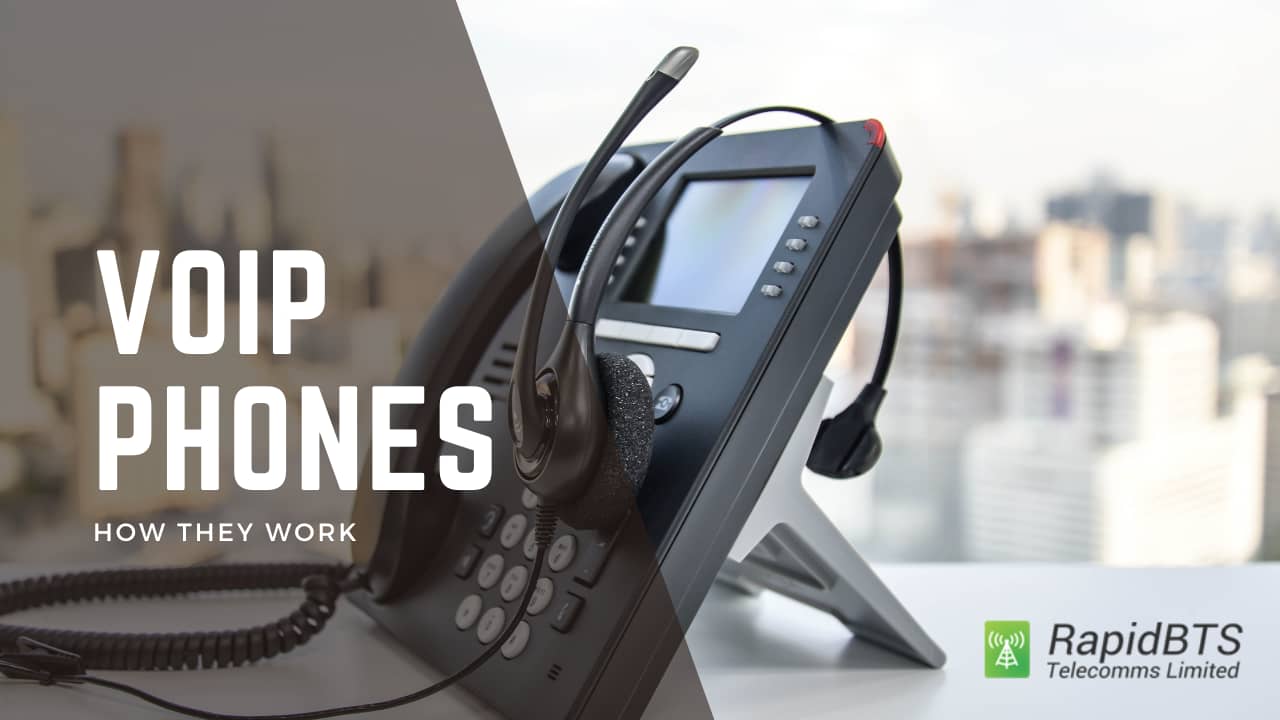What is a VoIP Phone? How it Works and Best Picks
The VoIP phone system, also known as Voice over Internet Protocol, is a technology that allows users to make voice calls using a broadband internet connection instead of a regular (or analogue) phone line. VoIP converts sound into digital voice communication and transfers it through internet broadband. This technology has gained popularity due to its cost-efficiency and versatility.
What is a VoIP Phone System?
A VoIP phone system refers to the technology that enables voice communication using the internet instead of traditional phone lines. It utilizes IP phones, also known as VoIP phones, to make and receive calls over an IP network.
With a VoIP phone system, voice calls are converted into data packets and transmitted over the Internet, offering a more flexible and cost-effective alternative to traditional phone systems. These systems may include virtual phone numbers, call forwarding, conference calling, and other features like traditional phone systems.
Advantages and Disadvantages of VoIP
A VoIP phone system offers several advantages: cost savings, scalability, flexibility, and integration with other digital communications. However, there are also disadvantages, such as potential call quality issues, reliance on internet connectivity, and the need for power backup in case of outages.
Advantages
- Cost Savings: VoIP typically offers lower costs compared to traditional phone services. This is because it uses the internet for call transmission, eliminating the need for separate phone lines and reducing long-distance charges.
- Scalability: VoIP systems are highly scalable, allowing businesses to easily add or remove users as their needs change. This is ideal for growing businesses, as they don’t need to invest in expensive hardware or dedicated phone lines for each new employee.
- Flexibility: With VoIP, users aren’t tied to a physical location. Calls can be made or received anywhere with an internet connection, using various devices such as smartphones, laptops, or VoIP-enabled phones.
- Integration with Other Digital Communications: VoIP systems can be easily integrated with other digital communication tools such as email, video conferencing, and instant messaging.
Disadvantages
- Potential Call Quality Issues: VoIP relies on the internet to transmit voice data. This means that the quality of VoIP calls can be affected by bandwidth limitations, network congestion, or poor internet connection.
- Reliance on Internet Connectivity: Unlike traditional phone systems that use dedicated telephone lines, VoIP depends entirely on an Internet connection. This dependence means that if your internet service is down, so is your VoIP phone system.
- Need for Power Backup in Case of Outages: Traditional phone lines often continue to operate during power outages due to their separate power supply. However, VoIP systems require a powered device (like a phone or computer) and a working internet router. During a power outage, unless there is a backup power source like an Uninterruptible Power Supply (UPS), the VoIP system will be non-operational.
Difference Between a VoIP Phone and a Traditional Phone
Understanding the difference between VoIP and traditional phones is crucial in making an informed decision for your communication needs.
A traditional phone, commonly known as a landline phone, uses the public switched telephone network (PSTN) to transmit voice calls. It requires physical phone lines and is limited by the infrastructure in place.
On the other hand, a VoIP phone operates using the internet to transmit voice communication. It converts sound into digital voice data and transmits it through broadband, offering more flexibility and scalability than traditional phone systems.
| Feature | VoIP Phone | Traditional Phone |
|---|---|---|
| Connection | Uses Internet connection | Uses dedicated telephone lines |
| Cost | Generally lower cost for long-distance and international calls | Higher cost for long-distance and international calls |
| Mobility | Portable with Internet access; can be used anywhere with a strong internet connection | Stationary; limited to where the physical line reaches |
| Power Source | Requires power for the phone and the Internet router | Can work during power outages as it doesn’t rely on external power |
| Call Quality | Can vary based on Internet speed and bandwidth | Consistent, not dependent on external factors like Internet speed |
| Features | Advanced features like video calls, messaging, conferencing | Basic features focused on voice calls |
| Installation & Maintenance | Easier to install and update; software-based | Requires physical wiring and hardware maintenance |
| Scalability | Easily scalable with business growth; adding lines is straightforward | Adding lines can be complex and costly |
| Dependence on External Services | Dependent on Internet service and power supply | Independent of external services except for the telephone network |
Types of VoIP Phones
There are different types of VoIP phones available in the market. Some common types include desk phones, conference phones, and mobile phones with VoIP capabilities.
Desk phones are suitable for office environments, offering features like call forwarding and conference calling. Conference phones are designed for group calls with high-quality audio capabilities.
Mobile phones with VoIP support provide flexibility and mobility for users who need to make calls on the go. Understanding the types of VoIP phones available can help you choose the most suitable option for your communication needs.
Best Picks for VoIP Phone Systems
When considering the best picks for VoIP phone systems, evaluating the features and capabilities that align with your business needs is essential. Assess the scalability, call quality, and additional features such as call forwarding, conference calls, and virtual phone numbers to determine the best fit for your organization.
- Poly VVX 601: Best overall VoIP phone, noted for being very comfortable. However, it does not include an AC adapter.
- Cisco 7841: Recognized as the best-value VoIP phone. It’s affordable but has a small, grey-scale display.
- Ooma DP1-T: Best for working from home, offering unlimited nationwide calling. Its drawback is poor button haptics.
- Yealink SIP-T58A: Known for its features, including eight dedicated feature keys, but is pricier than similar models.
- Cisco 8845: Best for video conferencing and comes with a headset, though it’s priced on the higher end.
- Grandstream GXP2170: Notable for its customizability, with 44 customizable digital keys. However, it has only a 480×272 pixel display.
- Grandstream DP720: Best for those on a budget, affordable with a small 1.8-inch display.
Choosing the Right VoIP Phone Service Provider
When selecting a VoIP phone service provider, consider factors such as call quality, reliability, pricing, and the availability of features like call forwarding, virtual phone numbers, and conference calling.
Assess the provider’s track record, customer reviews, and support to ensure a smooth transition and ongoing service satisfaction. It’s also important to consider the provider’s compatibility with your existing hardware and the ease of setting up and managing the VoIP phone system within your business infrastructure.




